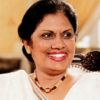Directory
President Chandrika Bandaranaike Kumaratunga (1994-2005)
Chandrika Bandaranaike Kumaratunga, (born June 29, 1945, http://www.britannica.com/place/Colombo" class="md-crosslink autoxref" data-show-preview="true">Colombo, http://www.britannica.com/place/Sri-Lanka" class="md-crosslink autoxref" data-show-preview="true">Ceylon [now Sri Lanka]), member of a prominent Sri Lankan political family, who was the first woman to serve as the http://www.britannica.com/topic/nation-state" class="md-crosslink autoxref" data-show-preview="true">country’s
http://www.britannica.com/topic/president-government-official" class="md-crosslink autoxref" data-show-preview="true">president (1994–2005). Chandrika Bandaranaike was the daughter of two former prime ministers. Her father was http://www.britannica.com/biography/S-W-R-D-Bandaranaike" class="md-crosslink" data-show-preview="true">S.W.R.D. Bandaranaike, founder of the socialist Sri Lanka Freedom Party and http://www.britannica.com/topic/prime-minister" class="md-crosslink autoxref" data-show-preview="true">prime minister from 1956 until his assassination in 1959. Her mother was http://www.britannica.com/biography/Sirimavo-Bandaranaike" class="md-crosslink" data-show-preview="true">Sirimavo Bandaranaike, who took control of the party upon his death and who served as prime minister from 1960 to 1965 and from 1970 to 1977. Their daughter was educated at the Universities of Paris and London, where she studied http://www.britannica.com/topic/political-science" class="md-crosslink autoxref" data-show-preview="true">political science, economics, law, and journalism. She turned to politics in 1984 and, with her husband, Vijaya Kumaratunga, a former actor, helped establish the Sri Lanka People’s Party. When her husband was assassinated in 1988, she formed the United Socialist Alliance. After a period in London she returned to Sri Lanka in the early 1990s and in 1993 formed the leftist http://www.britannica.com/dictionary/coalition" class="md-dictionary-link md-dictionary-tt-off eb" data-term="coalition" data-type="EB">coalition People’s Alliance. In elections held on August 16, 1994, the People’s Alliance took the largest number of seats in parliament, and on August 19 Kumaratunga became prime minister. She then won a landslide victory in the presidential election held on November 9 when she defeated Srima Dissanayake, widow of the United National Party (UNP) candidate Gamini Dissanayake, who had been assassinated two weeks earlier. On November 14 she appointed her mother prime minister. In 1995 she proposed changes to the constitution that would make Sri Lanka a federal state, with its districts, including those in which Tamils were a majority, having local <a href="/http://www.merriam-webster.com/dictionary/autonomy" class="md-dictionary-link md-dictionary-tt-off mw" data-term="







